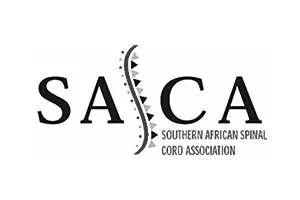
A Case Manager – WHY, WHEN AND HOW?
It is wonderful to see a varied audience such as this, to talk about the role of a case manager in medical malpractice lawsuits.
For those of you who do not know me, my name is Tzvi Brivik and I am a director at Malcolm Lyons and Brivik Inc. We act for Plaintiffs work only and are mostly involved in medical malpractice litigation. I am addressing you about an aspect of our case management that arises in a Plaintiff’s lawyer’s offices but which falls outside of the scope of the legal field but forms an intricate part of the work which is done to ensure that clients’needs are met and that they receive the help that they need which at the end of the day is why we litigate in the first place. An attorney cannot be out of the office involved in a number of different matters such as this scrutinising every medical expense and debating care which is required for the patient. The attorney’s focus must always be the success of the litigation. It is for this reason that even during the litigation process, and obviously post the litigation, the services of a case management officer are used, even though many of us at large involved in the medico-legal environment do often act from time to time as case managers in some way or another.
In its simplest form case management from a medical perspective would mean the assessment of medical and other needs of the patient for their wellbeing and to ensure that those needs are met.
The reason why childbirth injury claims have been chosen as the study for the day is because of the complexity of the treatment which is required once the matter is resolved and also the treatment regime which has been proposed and presumably agreed by the parties which must now be implemented.
As you all know often in matters such as these a battery of experts would have assessed, examined, analysed, considered and provided reports which are submitted to Court. In most of these matters the future medical expenses are paid out in cash as opposed to the Undertaking provided by the Road Accident Fund.
This places a greater obligation on the parties, more particularly the Plaintiff’s attorneys, to ensure that once the sum agreed is paid, it is spent in the most advantageous way.
It is a basic principle of trust management that you cannot erode the capital at a faster rate than that which it is able to grow. To ensure that the capital is preserved for the expected duration of the child’s life, it is essential that it is managed properly.
Out of the capital, substantial expenses are paid some of which must be made at the outset of either the litigation itself or on formation of the trust.
It is not my purpose today to take you through the quantum investigation in these matters but rather to discuss how those funds are protected by appointing a case manager and where a case management officer can add most value.
Let’s first discuss the definition of a case manager before considering the appointment of a case manager, the contract which would be applicable and the timing of such an appointment.
What is a case manager ?
There are many definitions for what case management itself, is such as the following: Identifying an effective approach to service delivery which can assist persons with severe disabilities to “live in a community”; or
“Co-ordinating, evaluating , referring and monitoring of all services”; or Alternatively,
“Co-ordinating services, analysing fiscal benefits, advocating for essential services , advising the client , family or caregiver and monitoring the use of resources”.
From the perspective of post litigation management of care, I believe the last definition is most apposite.
The case manager is required to have a bird’s eye-view of the total care which is required by the patient. This is not a question of the volume of care which is required but rather of the value of the care. In order to maximise the intervention which has been provided for and to enhance the life of the patient and those around him.
It involves the interaction of broader fields of experience and expertise such as social skills, which I will discuss below, and also knowledge of particular types of medical intervention including hardware such as wheelchairs, prosthesis and the like which are available.
A case manager requires knowledge of both the physical and social aspects of care. Who can act as a case manager? Currently the roll is most commonly performed by Occupational Therapists who have received psycho- social training as part of their studies. They are able to relate to both the medical requirements as well as to the psychological intervention necessary. But the role has also been performed by social workers and physiotherapists.
Often case managers are drawn from into the medico-legal field as they are familiar with what is required to compile reports after assessment of patients particularly, children who have suffered debilitating brain injuries. A case management officer is often appointed by the attorney and this can be done pre- settlement of the matter.
Once the merits of the matter are resolved either by way of Judgment or settlement, it has been my experience in the Western Cape that an interim payment is made. This is the correct way in which these matters should be litigated as it immediately enables those who care for the patient to attend to their most urgent needs which usually involves intervention in the form of speech therapy, physiotherapy, perhaps critical surgical intervention and of course the purchasing of equipment such as a wheelchair and the like. At that point it makes sense for the attorney to appoint a case management officer. That case management officer will be paid from the interim payment. The attorney is the one who must negotiate the fee and delineate the responsibilities.
If a Curator ad Litem has been appointed the Curator may be consulted and their approval for the expenditure requested.
The case management officer has many functions, their functions are not purely mechanical and they do not work to a strict timetable insofar as the care is required. Their function is also to reassure, support and advise. They also have to understand that there are boundaries between performing these functions and usurping the role of the family. They are certainly not on call and are not able to appear at will to assist the family or answer questions on behalf of the attorneys.
It is probably easiest to consider their role by analysing their function from
appointment. Immediately on appointment a case management officer would want to assess the patient and review the medico- legal reports which had been filed to that date.
The medico-legal reports as indicated has been prepared by a number of different experts and describe the treatment which has either been agreed or is still to be agreed as both reasonable and necessary. It is obviously a multi- disciplinary approach which the CMO would have to pull together and co-ordinate.
Our experience has been that it is irrelevant what the socio-economic status of the family involved in such a tragic incident is , the medical intervention required would be completely foreign and unknown.
When to get the treatment and how to go about obtaining the treatment and where that treatment is best rendered would be foreign to the family.
If caregivers are required, what skills should they have, what hours should they work and at what rate should they be paid must also be determined with the assistance of a case management officer. Initially the role of the case management officer looms large in the daily lives of the family. This is as the infrastructure needed to be put in place is substantial. The family would also require assistance with such basic tasks as shopping for the appropriate food, diapers and the like. The choices are so varied and they would have no knowledge as to how this is to be done. The case management officer thus equips the family to care for the patient and this includes home visits, to meet with the patient if this has not happened, and the family, and to assess the home and immediate environment.
There is a difference between a clinical as opposed to a hospital based case management officer.
The hospital based case management officer is not required to make decisions which extend post discharge. The decisions which that hospital based CMA makes relate to immediate care and intervention whilst hospitalised and the patient has access to that care. Working in the field
is obviously a different story. Care does not come together seamlessly and it is something that needs to be managed pro-actively. The case management officer should be competent to attend multiple disciplinary meetings and understand the language spoken by different medical specialists.
In managing the financial aspect of the care, it is important for the case management officer to distinguish between what are needs and what are asks or wants.
It is also important for the case management officer to understand holistically the care provided over the life expectancy of the child so as to ensure that the needs are met and to do so in a prudent way by providing the best care available considering the longevity of the trust, or whichever vehicle has been chosen to preserve the funds.
If there are conflicting therapies which had been proposed it is the role of the case management officer to secure a second opinion but also to advise the parents. The case management officer cannot take over the parenting role and parents must also be given the opportunity to provide input as it is their child whose health is at stake.
In order to best perform this financial role, the case management officer must be taken into the confidence of the trustees who have to advise the case management officer precisely what funds are available in the trust, what funds can be disbursed annually, what allocations have been made for large capital expenditure so that the case management officer can direct her efforts and energies accordingly.
It is also important to assess upfront what the requirements are from the case management officer so that a reasonable fee can be agreed. That fee arrangement need not be static and recognition can be made for the early intense involvement by making it a monthly sum reducing it to an hourly rate as time progresses. The level of intervention changes depending on the status of the litigation and passage of time. At the outset, and with an interim payment, the funds should be preserved as far as possible to ensure the longevity of that interim payment until the matter is resolved.
Once the full amount is secured at the end of the litigation, more long term planning can take place and a budget prepared in which funds are set aside for a case management officer.
All of the above may sound complicated and it is. Underlying the work which is done is the life of the patient and those of the immediate family.
It is about limiting entitlement and aspirations and improving the life of the patient.
The purpose of the litigation is to place the patient and the family in the position they would have been but for the negligence of the Defendant. As case management officers are not magicians and as Courts cannot restore good health, the only way in which this can be done is by securing funds for the family. It is the management of those funds once the litigation process has been completed, which becomes important. The Trustees in that instance play a vital role as does the case management officer.
So what are some of the points of debate which we can isolate from the above discussion, I would summarise these as follows:
1. Who best should be appointed as the case management officer and what skills should that person have;
2. When should a case manager be appointed, prior to the litigation having being finalised or after litigation is finalized;
3. On what basis should the case management officer be appointed, on a fixed term contract alternatively, a fixed term contract for a duration of time or further alternatively contracted for a certain number of hours worked per month;
4. Who should the case manager report to? An attorney, the trustees; and finally
5. At what stage should case management officers become redundant if at all.
From experience, a suggestion which I would make is that in the litigation setting, the Case Management Officer should be appointed in consultation with the Defendant once the merits are conceded and the interim payment made. This would avoid unnecessary debate as to the costs of the case management officers and also a questioning of the recommendations made by that officer.
It is not suggested that this is a consensus seeking exercise but rather the Defendant be informed of the decisions which are made and given an opportunity to provide its input. By doing so, arguments which it wishes to make further on down the line about the reasonableness or otherwise of either the expense of the case management officer herself or other expenses incurred can be ameliorated.
The second suggestion which I would make from experience is that the trustees who are appointed to manage the trusts have an infrastructure to monitor the case management officer and benchmark performance in relation to the recommendations made during the course of the litigation, in the various medico legal reports.
The trustees must be accessible to the case management officer and be able to speak a language which is understood by both from a financial perspective and understand at least in broad terms the care that is necessary.
Case management officers need not only be appointed in matters where there was a traumatic birth injury, the practice is to do so due to the large number of medical experts that are involved and the wide range of care which is required and also the very size of the awards.
SAMLA has taken an interest in this topic as it is closely related to the medico legal function which experts with whom attorneys work are involved and also forms part of the litigation process.
A case management officer also has an onus or responsibility which is not indistinguishable from a fiduciary responsibility both to the attorney who instructs and also to the patient.
Independently as a medical person there is a duty to do no harm and to act in the best interest of the patient.
My hope is that this conference starting off with this presentation acts as a guide or at least offer some guidance both to attorneys and case management officers in the litigation setting, and will makes a positive start.
The current position on objections to the con/arb process
Con/arb process - The Commission for Conciliation, Mediation[...]
Out of time? Think again – The CCMA and its rules
By Lara Keil (Candidate Legal Practitioner) under the[...]
RAF’s lodgement requirements: Claimants further prejudiced
By Lara Keil (Candidate Legal Practitioner) under[...]
















